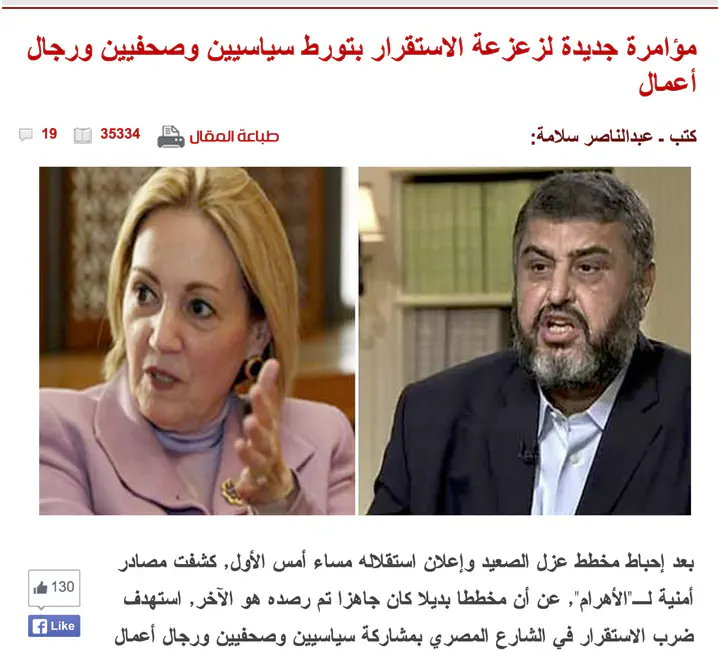 From al-Ahram - front page article alleging conspiracy involving then US Ambassador Anne Peterson and a Muslim Brotherhood leader, among others.
From al-Ahram - front page article alleging conspiracy involving then US Ambassador Anne Peterson and a Muslim Brotherhood leader, among others.Abstract
When, and why, do governments promote conspiracy theories? We build on claims that autocrats use misinformation for diversionary purposes by showing how the level of threat a regime faces affects the promotion of conspiracy theories. Governments facing threats may attempt to stave them off by oversupplying conspiracy theories. Secure governments undersupply conspiracy theories relative to independent media because promoting conspiracy theories is politically costly. Our arguments apply to both autocracies and democracies, though threatened democrats supply fewer conspiracy theories than threatened autocrats because they are more sensitive to the costs of promoting conspiracies. We test our arguments by examining conspiracy theories in Egypt’s print media between 2005 and 2018. When the government faced threats, the state-controlled newspaper published more conspiracy theories than its independent counterpart. This relationship is moderated by changes in regime: the government promoted fewer conspiracy theories during a brief period of democracy despite facing significant threats.